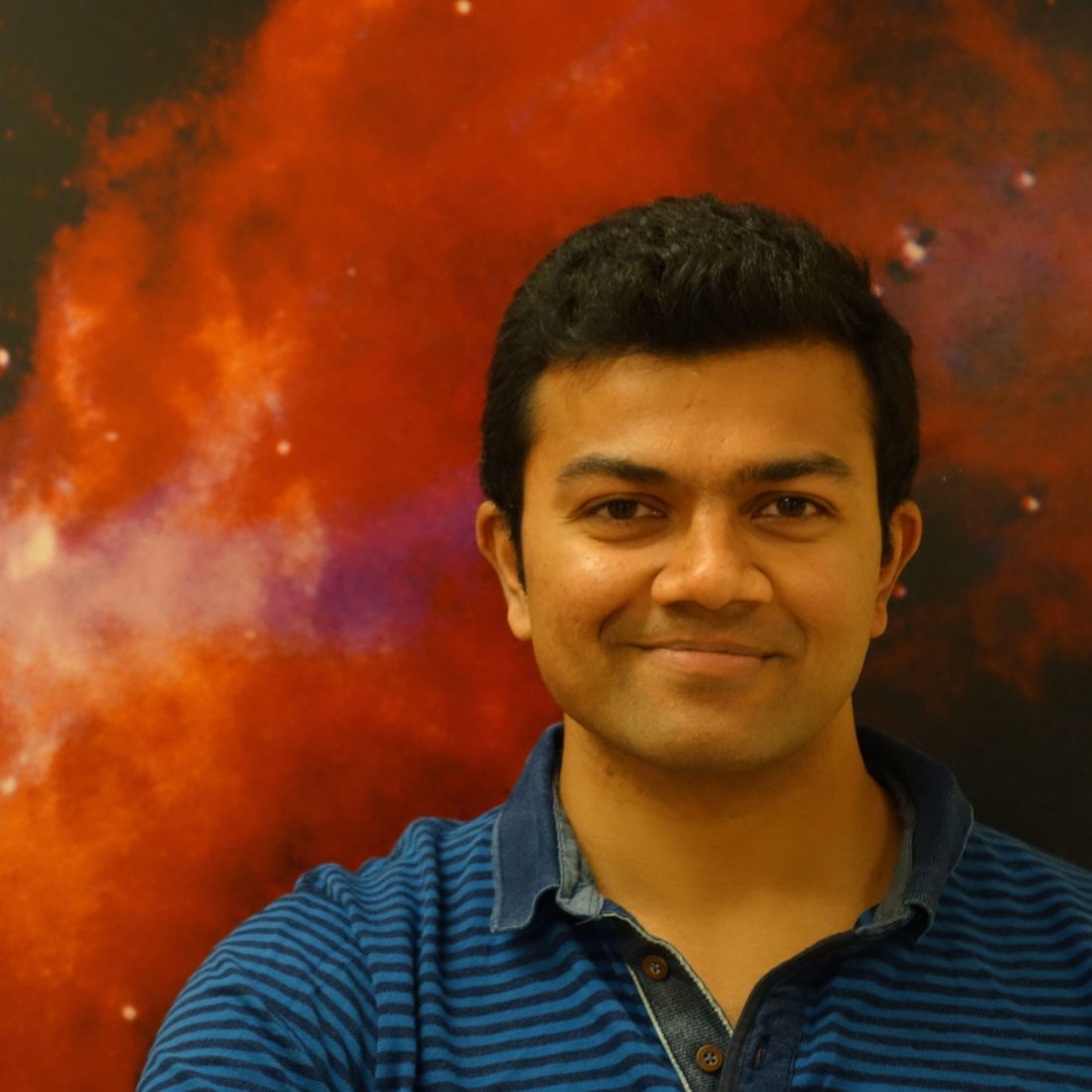Science and Mathematics
Physics Colloquium: Dheeraj Pasham
January 18, 2024 at 3:30pm – 4:45pm EST
Physics Building, 202/204
This event has already occurred. The information may no longer be valid.

The Syracuse University Physics Department is pleased to welcome Dr. Dheeraj Pasham, Research Scientist at Massachusetts Institute of Technology.
Dheeraj Pasham (DJ) did his undergraduate studies at the Indian Institute of Technology Bombay in Aerospace Engineering. He got his Ph.D. from the University of Maryland in College Park working with Tod Strohmayer (PI of Rossi X-ray timing explorer) on bright ultraluminous X-ray sources, some of which were intermediate-mass black hole candidates. Afterwards, he did a short postdoc at NASA Goddard working on stellar tidal disruption events with Brad Cenko, current PI of the Swift X-ray observatory. He then moved to MIT as an Einstein fellow where he focused on tidal disruption events. Since 2019, he has been a research scientist at MIT and has been working on various types of extragalactic transients powered by a compact object. These include AGN, tidal disruption events, ultra-long GRBs and X-ray supernovae. He is particularly interested in multi-messenger systems, i.e., those that can emit gravitational waves and/or neutrinos in addition to electromagnetic emission. He is also part of NICER’s observatory working group and calibration team and has been driving several NICER studies of extragalactic transients detected by all-sky optical surveys.
“Repeating Extragalactic Nuclear Transients as Extreme Mass Ratio Binaries”
Abstract:
Extreme Mass Ratio binaries are systems containing a massive black hole (>10,000 Msolar) and a closely orbiting smaller object (0.1-1000 Msolar). If the companion is also a black hole, they can produce gravitational waves, potentially detectable with the space-based detectors that will start operating in the next decade. The identification of electromagnetic counterparts of such gravitational wave emitters will transform our understanding of supermassive black hole growth, probe dark energy, and put fundamental constraints on gravity. Alternatively, if the companion is a star, such systems allow us to study the orbital dynamics around massive black holes in unprecedented detail. Dr. Pasham will present the various flavors of repeating nuclear transients (those occurring within galactic centers) that they have identified using multi-wavelength studies of several classes of astrophysical transients including stellar tidal distribution events, quasi-periodic eruptions, from nuclei of external galaxies, and outbursts from active galactic nuclei (AGN). He will also present state-of-the-art general relativistic hydrodynamic simulations of objects embedded in AGN disks and argue that in some cases these repeating transients could be double compact object binaries with direct implications for multi-messenger astronomy. Dr. Pasham will end by highlighting the prospects they hold for the coming decade.
This event was published on January 9, 2024.
Event Details
- Category
- Science and Mathematics
- Type
- Talks
- Region
- Campus
- Open to
- Public
- Organizer
- CAS-Department of Physics
- Contact
- CAS-Department of Physics
phyadmin@syr.edu
+1.315.443.3901
- Accessibility
- Contact CAS-Department of Physics to request accommodations
